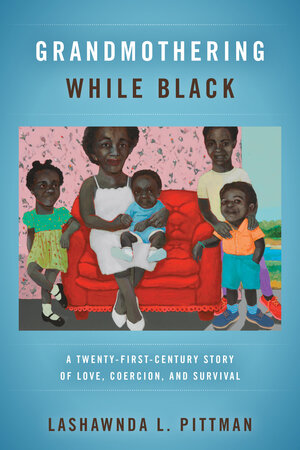
Carework Network Members in the News
October 22, 2020
Los efectos de la pandemia en los espacios de cuidado infantil del Cono Sur
November 13, 2020By Melissa Hodges
11/10/20
The COVID-19 crises and fraught U.S. political season has demonstrated a uniquely American denial of a public discourse of care as related to citizenship and civil rights while simultaneously highlighting the need to adopt an ethics of care to rebuild social solidarity and address the stark inequalities laid bare by the pandemic. The stark political divide that remains in the wake of the presidential election shows that a primary goal of those advocating for policy changes must focus on deconstructing a racialized and gendered class discourse of citizenship that is constructed around the denial of care as a human right by providing an alternative vision of the state as responsible to its citizens.
At a time of increased social vulnerability resulting from the pandemic, for scholars who study masculinity it is not that surprising that mask mandates and lock downs became a flash point of political contention among white working-class men. In the past decade, researchers have documented the rise of “Angry White Men” that comprise the bulk of anti-masking groups and “militias” that have been protesting quarantine restrictions and stay-at-home orders. For example, as discussed in a recent article in The Atlantic, sociologist Arlie Russell Hochschild finds that the white working class men report feeling aggrieved based on their perceptions of losing status relative to women and people of color in a shifting cultural landscape. While an important insight, as Hochschild notes, white male identity politics alone is not sufficiently for understanding the broader the institutional arrangements over the past forty years that have produced this cultural response. The development of white male identarian groups over time directly correlate with the shift to neoliberalism, free trade, and US colonial ventures abroad that have combined military experience with increasing employment precarity, and stagnant wages, in key ways that have shaped the construction masculinity as family provider for working class white men, particularly for those living in rural areas.
What then is U.S masculinity to those who feel they are denied dignity in the spheres of employment and family? The soldier. The pioneer. The libertarian myth of the “rugged individualist” who has no care needs himself and does not give care outside of material provision for his immediate family. Moreover, under this construction of white masculinity and citizenship, accepting assistance from the state is a means of giving up one’s liberty: If you access state assistance, you are not a “man.” In other words, this is a construction of citizenship rights built on the denial of state responsibility for the basic care and provision of the citizenry. Regardless of the irresponsibility of those in positions of power for politicizing public health, the politics surrounding discussions of individual “liberty” related to the how state and local government response to the pandemic reflects a long term readjustment in the social relations of working class white men to the new political economy, which has clearly communicated “your own your own” to them since the 1980s.
Advocates of incorporating an ethics of care into policy have their work cut out for them. Dislodging the racism and sexism embedded in this construction of working class white masculinity cannot be undone through cultural change alone. As prominent care scholar Nancy Folbre argues, addressing the current issues facing the U.S. requires reframing the political discourse around the pandemic that expands the definition of human rights in a material sense to include 1) a universalist concept of the right to healthcare and 2) reflect the state’s responsibility for addressing public health and social and economic inequalities. Given the current political division of the moment, providing a vision of the state as responsible to its citizens is necessary for rebuilding social solidarity.


